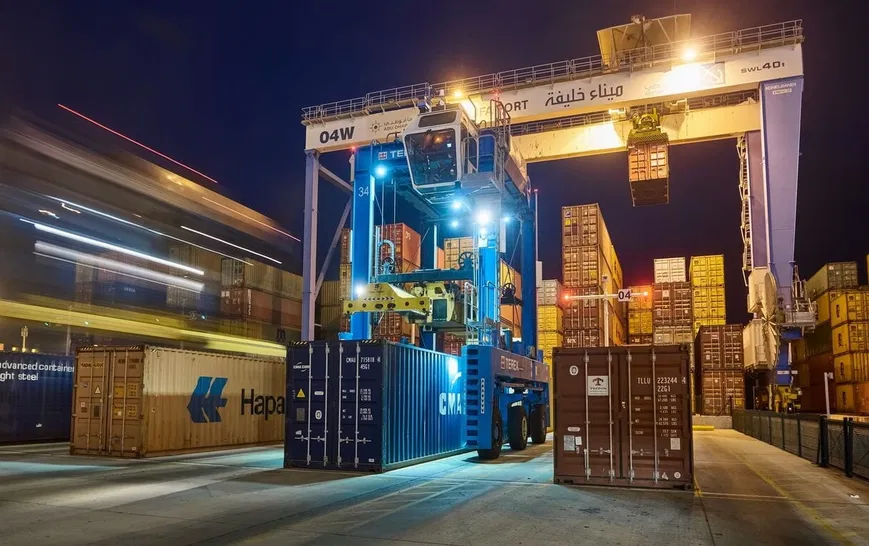Overview of Current Shipping Challenges
In light of recent events, shipping routes such as the Red Sea and Suez Canal are facing significant upheaval due to escalating military confrontations. These tensions have altered the landscape of maritime logistics, affecting global shipping lines and cargo movement.
Implications of Closure of Strategic Maritime Routes
Analysts are signaling that major shipping lines’ return to the Red Sea/Suez Canal route is less likely as military strikes continue between Israel and Iran. While there haven’t been direct assaults on commercial shipping from Iran after recent military actions, a shift in this situation may soon occur.
Reports indicate that Iran’s parliament is weighing the possibility of closing the strategically vital Strait of Hormuz. This narrow waterway is crucial for global shipping as it facilitates approximately 20% of the world’s crude oil supply from the Persian Gulf. The disruption could impose economic pressure on multiple nations involved.
Strategic Significance of the Strait of Hormuz
The Strait of Hormuz serves as a critical passage for maritime trade. A closure would force shipping lines to reroute, primarily increasing reliance on ports on India’s west coast. This change not only complicates logistical operations but may also lead to port congestion and higher shipping costs.
Potential Consequences for Shipping Rates
- Increased Shipping Costs: Shipping rates could see a significant spike as logistical chain reactions take place.
- Rerouted Services: Cargo vessels would need to adjust their routes, thus increasing delivery times.
- Security Surcharges: Carriers might implement security surcharges to cover increased risks.
Many ocean carriers have chosen to sidestep the Red Sea altogether, opting for longer routes around Africa to ensure safety and reliability. This re-routing strategy reflects an ongoing concern about stability in the region, especially following missile attacks from Iran-backed groups targeting Israel.
Current Shipping Operations in the Region
Despite the hazards, vessel tracking platforms confirm that commercial activities are still occurring through the Strait of Hormuz, with notable shipping lines like Mediterranean Shipping Co. and Evergreen maintaining operations. However, the ongoing military tensions require vessels to transit the area with heightened caution.
Cautions for Mariners
The UK Maritime Trade Operations (UKMTO) has issued warnings about the potential for military activity impacting shipping operations. Mariners are advised to approach the Arabian Gulf and the Strait of Hormuz with great care, which emphasizes the fragility of maritime security in the region.
Long-Term Effects on Global Logistics
Geopolitical conflicts such as this do not arise in a vacuum; their ramifications extend far beyond immediate borders. Should major shipping lines cease to transit the Strait of Hormuz, the impacts on cargo transport could ripple throughout global logistics, manifesting in significant delays and price increases.
Local and International Impacts
As container lines potentially withdraw from these routes, critical terminals like Jebel Ali in Dubai could see decreased activity. Moreover, the prospect of increased conflict raises the specter of widespread congestion in Asian shipping spaces, which would exacerbate the challenges already known in global freight transport.
Potential for Increased Congestion
Shipping experts worry that the withdrawal of services could create a cascading effect, leading to bottlenecks in other regions. In light of the complexity of transportation logistics, increased demand on remaining operational routes might lead the logistics industry toward higher operational pressures.
The Broader Picture of Cargo Movement
As geopolitical tensions evolve, the challenge for logistics companies remains to ensure smooth operations under increased risks. Analysts continue to advocate for flexible logistics strategies that can adjust rapidly to changing geostrategic landscapes.
Even though extensive reviews and feedback on shipping routes are informative, they pale in comparison to firsthand experiences. Ordering cargo transportation through GetTransport.com not only offers competitive rates globally but also empowers users to make informed decisions without incurring unnecessary costs. The platform provides comprehensive options for logistics needs—from office relocations to moving bulky items—which fosters efficiency and transparency.
Conclusion
As tensions in the Red Sea region escalate, container shipping’s reliability is under scrutiny. The potential closure of crucial maritime routes like the Strait of Hormuz amplifies the significance of adaptable and proactive logistical planning. GetTransport.com presents a versatile solution for all shipping and hauling demands at competitive prices. Its robust offerings simplify the complex logistics landscape, making it the go-to choice for transporting cargo globally.
Even in a landscape fraught with challenges, clarity and options pave the way ahead. Today, let GetTransport.com be your partner in navigating these waters smoothly, seamlessly addressing your diverse transportation needs. Don’t hesitate—Book now.

